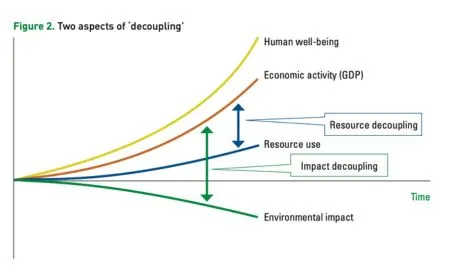Where to Live for a Better Life in 2025
What makes a country the “best” place to live? Whether you're seeking safety, sustainability, or new opportunities, this post explores the top countries that align with personal and professional purpose in 2025. From values to quality of life, discover where your future could thrive. How to Build the Organization of the Future

Where Should You Live to Live Your Best Life?
Imagine you’re planning to move to a new city or country, seeking a place to live your best life. What factors would you consider? Clean air, access to nature, vibrant cultural life, economic opportunities, or perhaps a strong sense of community? While traditional measures like GDP might suggest you look at the wealthiest nations, these numbers don't tell the whole story about what contributes to a good life.

Why GDP is not the best measure of well-being?
In our search for the ideal place to live, we often focus on economic prosperity as measured by GDP. But is GDP really the best measure of well-being? Shouldn't we also consider the quality of our environment, our health, our social connections, and our overall happiness? In this article, we’ll explore why GDP might not be the best guide and why alternative metrics might better reflect where you can truly thrive.
Understanding the limitations of GDP as a measure of well-being
Gross Domestic Product (GDP) has long been the go-to metric for assessing a country's economic performance and, by extension, its citizens' well-being. Developed by Simon Kuznets in the 1930s, GDP measures the total value of goods and services produced within a country. It’s often used as a shorthand to gauge economic success and, by implication, societal progress.

However, GDP as a measure of well-being is increasingly coming under scrutiny. Critics argue that GDP is a narrow and often misleading indicator of what truly makes life good. Joseph Stiglitz, Amartya Sen, and Jean-Paul Fitoussi, in their "Report by the Commission on the Measurement of Economic Performance and Social Progress," highlight several fundamental flaws with GDP:
👉🏼 First, GDP overlooks unpaid work that significantly contributes to our lives, such as household chores or volunteer work, and it underrepresents the value of government services, including healthcare and education.
👉🏼 Second, GDP fails to account for the sustainability of growth. It doesn't distinguish between economic activities that enhance wealth and those that degrade our environment, consume non-renewable resources, or create social harm. For instance, activities that generate pollution might increase GDP, but they also impose long-term costs on health and the environment, which GDP fails to capture.
👉🏼 Third, GDP ignores the distribution of wealth within a society. A country might have a high GDP, but if this wealth is concentrated in the hands of a few, it says little about the general population's well-being.
👉🏼 Finally, GDP doesn’t capture many aspects of life that people value, such as health, education, leisure, and environmental quality. As Justin Fox points out in *The Economics of Well-Being,* GDP can’t fully measure progress because it doesn’t account for the quality of life in its calculations.
Decoupling Economic Growth from Environmental and Social Well-Being
The idea of decoupling economic growth from environmental and social harm is central to modern discussions about sustainable development. Green Growth and related concepts aim to balance economic development with ecological sustainability, often through strategies that reduce the environmental impact of economic activities.

However, the effectiveness of these approaches is debated. Critics argue that while efforts to decouple growth from environmental degradation (first-order decoupling) are necessary, they don't go far enough. For genuine sustainability, we must also decouple human well-being from the relentless pursuit of GDP growth (second-order decoupling). This means rethinking the way we measure progress and prosperity, focusing less on economic output and more on the quality of life, environmental health, and social equity.
By continuing to emphasize GDP growth, we risk perpetuating a system that prioritizes economic output over true well-being. This not only leads to environmental degradation but also fails to address social inequalities and the holistic needs of individuals and communities. As the concept of second-order decoupling suggests, we need to develop new metrics that better reflect the complex interplay between economic, social, and environmental factors.
Explore the meta crisis of our economic system"
If you feel like exploring the deep layer meta crisis of our economic system, watch this insightful and moving interview with Daniel Schmachtenberger:
What are alternative measures and evaluations of wellbeing?
As the limitations of GDP become more evident, several alternative measures have been developed to provide a more comprehensive understanding of wellbeing. These measures consider a variety of factors, from environmental sustainability to social equity, offering a fuller picture of what makes life fulfilling. Here are some key alternatives:
📊 Genuine Progress Indicator (GPI): Introduced by Redefining Progress in 1996, the GPI goes beyond GDP by incorporating environmental and social factors into its calculations. It adds positive contributions like volunteer work and household labor while subtracting negative effects such as pollution and income inequality. This provides a more accurate reflection of a nation's economic health and its citizens' wellbeing.
🌱 Happy Planet Index (HPI): Developed by the New Economics Foundation, the HPI combines wellbeing, life expectancy, and ecological footprint. This index offers insight into how effectively countries use their environmental resources to enable their citizens to live long, happy lives. It challenges the notion that more wealth equates to better quality of life.
🌟 Human Development Index (HDI): The United Nations' HDI ranks countries based on life expectancy, education, and per capita income. By focusing on these dimensions, the HDI provides a broader view of human development and helps identify areas where countries can improve.
🔄 Social Progress Index (SPI): The SPI measures the extent to which countries meet basic human needs, foundations of wellbeing, and opportunities for progress. It evaluates a wide range of social and environmental indicators, providing a nuanced picture of a nation's social progress and areas needing attention.
😊 World Happiness Report: This report, published by the United Nations, ranks countries based on citizens' self-reported wellbeing. Factors such as social support, freedom to make life choices, and generosity are considered, making it a valuable tool for understanding how different societies foster happiness.
🔍 Better Life Index: Created by the OECD, this interactive tool allows users to weigh countries' performance across various domains crucial to living conditions and quality of life, such as housing, income, jobs, community, education, environment, governance, health, life satisfaction, safety, and work-life balance.
"Play with the Better Life Index"
By exploring these alternative measures, we can gain a more holistic understanding of wellbeing that goes beyond economic output and considers the multifaceted nature of human happiness and environmental sustainability.
What would YOUR measurement for wellbeing be?
Defining what constitutes wellbeing is inherently subjective and can vary widely from person to person. Some may prioritize economic stability and career opportunities, while others might value environmental quality, community, or cultural life more highly. What would you prioritize?
To see what country would be best for you based on your values and priorities, play with the Better Life Index. This tool allows you to adjust the importance of various factors, such as housing, income, jobs, community, education, environment, governance, health, life satisfaction, safety, and work-life balance, to see which city or country best matches your ideal conditions for living a fulfilling life.
Design your wellbeing measurement, and see what places work best for you!
Ready to move to the place where you can live your best life? Perhaps not yet. There might be factors the Better Life Index does not consider, which for you matter. What are those?
Playing with the Better Life Index might not convince you to pack your bags yet (or it might!), but it definitely encourages a deeper reflection on what truly matters in life! Feel free to share your experiences and “best place” with others! The more we understand the diverse factors that contribute to wellbeing, the better equipped we will be to create environments that support a high quality of life for everyone.
Written by:
Dr. Maren Kropfeld, Professor for Sustainability & Entrepreneurship
Sources
📖 Fox, Justin (2012). The Economics of Well-Being. Harvard Business Review. January-February 2012. https://hbr.org/2012/01/the-economics-of-well-being
Kuznets, S. (1934). "National Income, 1929–1932". 73rd U.S. Congress, 2d session, Senate document no. 124, page 5-7. https://fraser.stlouisfed.org/title/971
Göpel, M. (2016). The Great Mindshift. Springer Cham.
Parrique T., Barth J., Briens F., C. Kerschner, Kraus-Polk A., Kuokkanen A., Spangenberg J.H., (2019). Decoupling debunked: Evidence and arguments against green growth as a sole strategy for sustainability. European Environmental Bureau.
UNEP (2011) Decoupling natural resource use and environmental impacts from economic growth, A Report of the Working Group on Decoupling to the International Resource Panel. Fischer-Kowalski, M., Swilling, M., von Weizsäcker, E.U., Ren, Y., Moriguchi, Y., Crane, W., Krausmann, F., Eisenmenger, N., Giljum, S., Hennicke, P., Romero Lankao, P., Siriban Manalang, A., Sewerin, S.https://www.resourcepanel.org/reports/decoupling-natural-resource-use-and-environmental-impacts-economic-growth
World Bank Group (2024). GPD. https://data.worldbank.org/indicator/NY.GDP.MKTP.CD


.svg)
.svg)
.svg)



.webp)




.webp)
